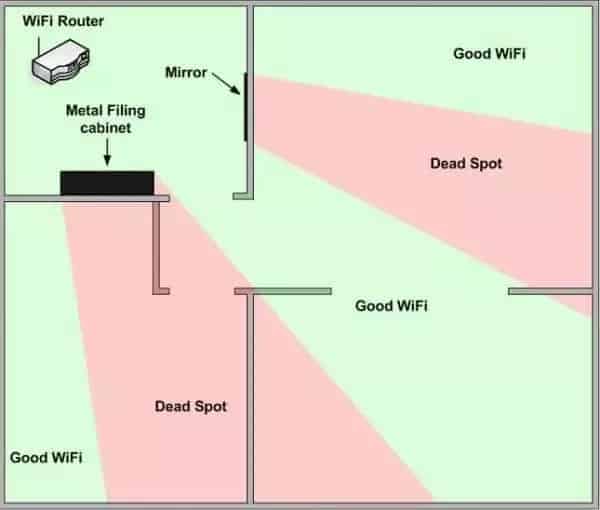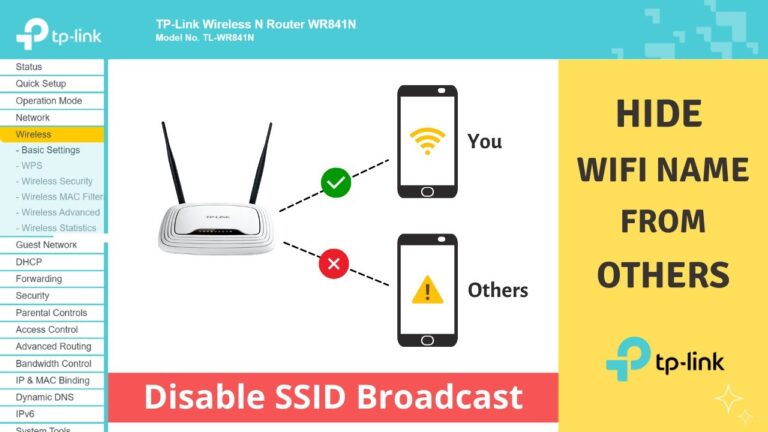Can WiFi Go Through Walls?
WiFi is a technology that allows for wireless internet access. Many people wonder if WiFi signals can pass through walls. The answer is yes, to a certain extent. WiFi signals can pass through walls and other solid objects, but the strength of the signal will be weakened. The number of walls and other objects, as well as their thickness, will affect the strength of the signal. Additionally, certain materials, such as metal, may block the signal completely. For this reason, it is important to take into consideration the environment when setting up a wireless network.
What is WiFi and How Does it Work?
WiFi is short for Wireless Fidelity and is the most popular way to connect to the internet. It is a type of wireless network technology that uses radio waves to connect devices to the internet or to each other. Any device that has a WiFi adapter can connect to the internet without the need of cables or wires. WiFi networks are created by routers which emit a signal that can be picked up by any device that is within range. This signal is then used by the device to connect to the internet, allowing you to access all the features of the web. WiFi is an incredibly convenient technology and can be found in most homes, businesses and public places such as libraries, airports, and cafes.
What Factors Affect the Strength of a WiFi Signal?
A strong and reliable WiFi signal is essential for a smooth online experience. But what factors affect this signal strength? The most important factor is the distance between the WiFi router and device. The farther away a device is from the router, the weaker the signal. Additionally, physical obstructions between the router and device, such as walls or furniture, can weaken the signal. The number of users connected to the same router can also cause congestion, resulting in a weaker signal. Finally, the type of router and antenna used can affect the strength of the WiFi signal. By understanding these factors and making simple adjustments, you can ensure a strong and reliable WiFi connection.
Does WiFi Signal Go Through Walls?
The age-old question of “Does WiFi signal go through walls?” has been puzzling tech-savvy people for years. The answer, in short, is yes… and no. WiFi signals can penetrate walls, but the extent of their reach depends on the type of wall material and the signal strength of your router. WiFi signals will travel through walls made of drywall, plaster, and wood, but they are blocked by materials like brick and metal. Ultimately, the strength and type of your router will determine how far the signal will reach. So if you want to extend the WiFi signal into other rooms, consider boosting your router’s power and using mesh networks to create a more connected home.
What Can Be Done to Improve WiFi Signal Through Walls?
The question of how to improve WiFi signal through walls is one that many homeowners and business owners face. Fortunately, there are a number of simple steps that can be taken to boost the signal and ensure that everyone can stay connected. First, it is important to position the router in an optimal location. This will help ensure that the signal can reach as far as possible. Additionally, using a high-gain antenna or a range extender can help to increase the range of the signal. Finally, using a separate network for each device can help to alleviate any interference from other devices that are using the same network. With these tips, anyone can ensure that their WiFi signal can reach through walls and offer a reliable connection.
What Are the Alternatives to WiFi for Going Through Walls?
WiFi is the most popular and widely used method for connecting to the internet, but it’s not the only option. In many cases, going through walls requires a different type of connection. If you’re looking for reliable, cost-effective, and secure alternatives to WiFi for going through walls, there are several options available. For short-range transmission, local area networks (LANs) can be used to transmit data through walls. For longer distances, cellular networks provide high-speed transmission over large distances. For the most secure connection, wired Ethernet is often the best choice for going through walls. While these alternatives may require more setup and cost more initially, they offer the best overall performance and reliability.
Summary and Conclusion
The blog section has been an excellent resource for readers to explore new topics, gain fresh perspectives, and learn from the stories of others. It has provided an effective platform for discussion and debate, allowing readers to engage in meaningful dialogue and share their opinions in an open forum. It has also provided an opportunity for readers to gain insight into different cultures and lifestyles and to explore a variety of topics from a wide range of perspectives. In conclusion, the blog section has been an invaluable tool for educating, informing and inspiring readers. It has enabled us to connect with each other on a deeper level and to foster understanding and respect for different points of view.
FAQs About the Can WiFi Go Through Walls?
1. Does WiFi signal go through walls?
Yes, WiFi signals can go through walls and other solid objects, although the signal strength will be reduced the further away the router is from the device.
2. What materials can interfere with WiFi signals?
WiFi signals can be weakened or blocked by thick walls, metal objects, and other materials that are designed to block wireless signals.
3. What can I do if my WiFi signal is weak in certain areas of my home?
If you are experiencing weak WiFi signals in certain areas of your home, you can try repositioning the router to a higher location or investing in a WiFi range extender to boost the signal strength.
Conclusion
In conclusion, WiFi signals can travel through walls, but their range and strength will depend on the type of material the walls are made of and the thickness of the walls. While concrete walls will block most signals, thinner walls made of drywall or wood may allow some of the signal to pass through. Ultimately, the speed and reliability of your WiFi connection will depend on the strength of the signal and the number of walls it must pass through.





